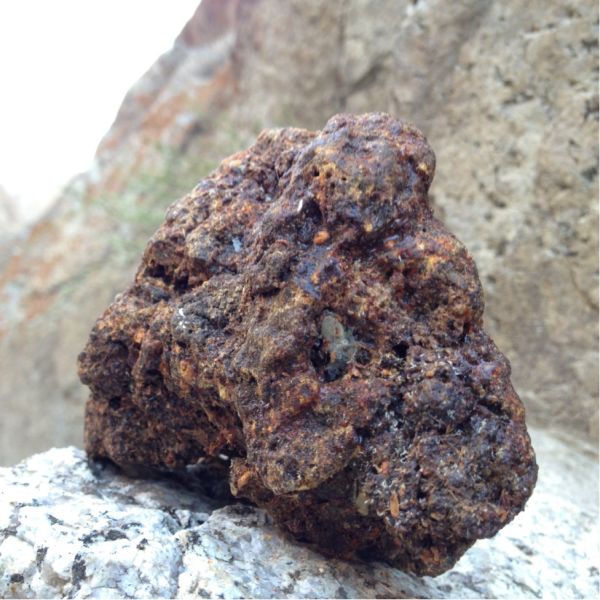Shilajit, also called mineral pitch, is the result of a long process of breaking down plant matter and minerals. It is a sticky, black, tar-like substance that comes from rocks in high mountain ranges.
Shilajit was traditionally sourced in India and Tibet, though it is now found in many other countries.
The numerous compounds found in shilajit may be helpful for brain function, and may even aid Alzheimer’s therapy.
A study in the International Journal of Alzheimer’s Disease noted that shilajit is traditionally used for longevity and to slow aging. The compounds in it may help control cognitive disorders, such as Alzheimer’s.
Researchers expect shilajit to have an impact in preventing cognitive disorders, but more research is needed to explore these possibilities.
One study noted that fulvic acid, one of the key compounds in shilajit, acts as an antioxidant and anti-inflammatory compound. As such, it may help reduce free radicals and cellular damage in the body, which are two key factors in aging.
Daily supplementation of shilajit may contribute to overall vitality and a slower aging process in some people.
Anemia develops when the blood does not have enough healthy cells or hemoglobin. There are many causes of anemia, including iron deficiency.
Iron deficiency anemia can cause numerous symptoms in the body, including:
1.irregular heartbeat
2.fatigue and weakness
3.cold hands and feet
4.headache
Shilajit contains high levels of humic acid and iron, which may be helpful in treating iron deficiency anemia. It is important to explore this option with a doctor before taking supplements, however.
The wide range of minerals and compounds found in shilajit may also help fight off viruses. A research study noted that shilajit could fight off and kill many different viruses in isolated environments, including some herpes viruses.
Researchers commented that while it does appear to be effective, more studies carried out with live subjects are needed to back up these claims.
Shilajit is available as a powder or as a supplement that can be dissolved in milk or water.
A person can dissolve a pea-sized portion of shilajit in liquid and drink it up to three times a day, depending on the instructions on the package.
The recommended dose of shilajit is 300 to 500 milligrams per day. However, it is important that a person speaks with a doctor before taking any natural supplements.
Research suggests that shilajit is safe for long-term use as a dietary supplement. However, there are some potential side effects of using shilajit.
Shilajit may lower blood pressure, which can be dangerous for people on high blood pressure medications. People with an active heart disease or with a history of hypotension should avoid taking shilajit to prevent a drop in blood pressure.
Post time: May-15-2020
